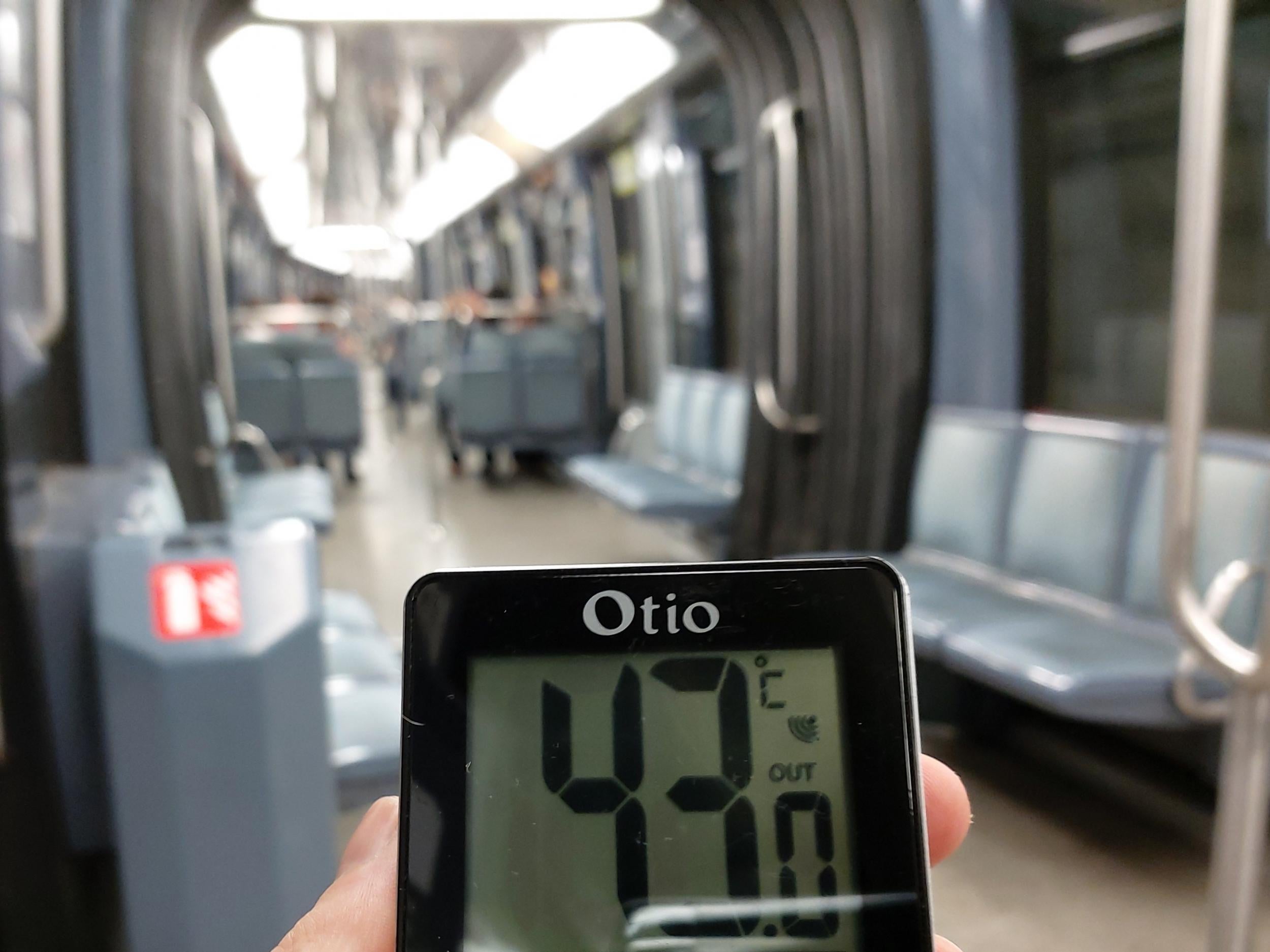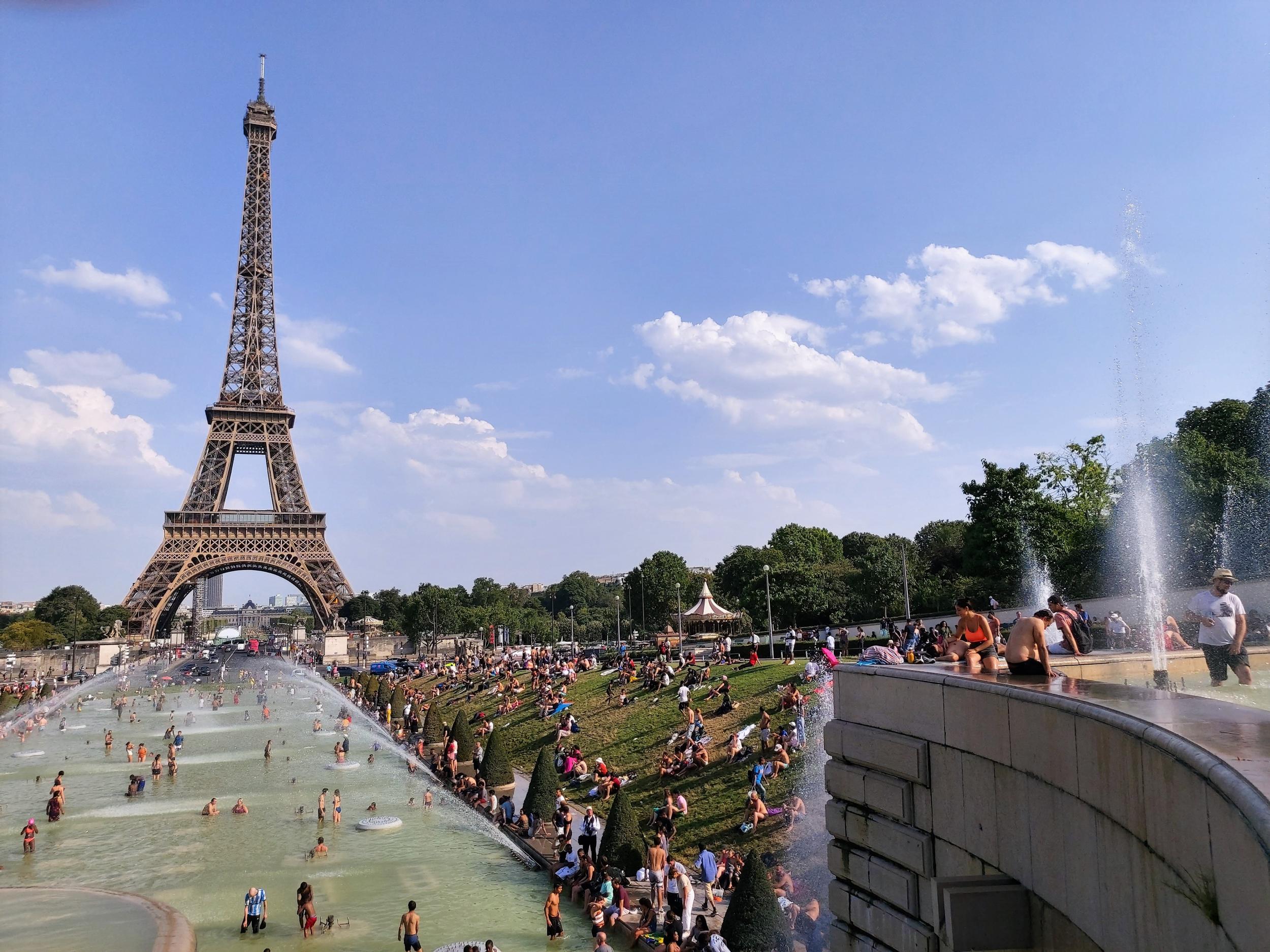Paris swelters on hottest day in its history as France struggles to avoid another catastrophe
'It’s never been so hot that things have just broken,' one city worker says
Paris has never been as hot as it was on Thursday. City infrastructure buckled and broke, government buildings shut down and fountains filled with people as the second heatwave in less than a month swept across northern Europe.
Not since 1947 had the temperature risen above 40C in the French capital, but at 4.32pm the national weather service registered a new record temperature of 42.6C.
Paris was just one of 20 departments placed on red alert in the country but it was within the limestone confines of the capital that the heat was felt most fiercely.
Ground temperatures were closer to 50C thanks to a phenomenon known as the “urban heat island” – an effect that means sun-battered roads and buildings effectively act as radiators during the night – and Thursday was the fourth day of this steadily building heatwave.
By 10am #AlerteRouge was already trending on Twitter.
Trains were cancelled or forced to travel at reduced speeds due to fears the tracks would warp, while some metro stations saw ticket barriers seize up in the heat.
“I’ve never seen anything like this,” said an RATP worker at Invalides station, who had no choice but to let passengers travel for free due to malfunctioning turnstiles. “It’s never been so hot that things have just broken.”
Inside the metro carriages, temperatures reached into the high thirties and low forties, with parts of Line 4 reaching the same temperature as the streets above.

At midday, several prefectures around the city announced they were closing for the day due to a lack of air conditioning in the buildings.
During the most intense hours of the heatwave that followed, city streets were deserted as ponds and fountains transformed into public paddling pools.

Others sought refuge in the frozen sections of supermarkets, some of which had run out of water due to an ill-timed viral message that spread across WhatsApp earlier this week, claiming the city’s water supply had been poisoned.
Public authorities were forced to put out a response to rubbish the fears, together with hundreds of warnings about the actual dangers posed by the heat. The last time the country suffered an intense heatwave similar to this was in 2003, when more than 15,000 people died.
Beyond the new colour-coded heat alert system, efforts to prevent a similar catastrophe have included volunteers handing out water and sunscreen to homeless people, as well as messages across television, radio and social media urging people to “hydrate!"

It was a similar story across northern Europe, where one by one temperature records tumbled on Thursday. Holland beat its national record that had stood since 1944 with a reading of 39.3C in Eindhoven, while a temperature of 40.7C in Beitem broke Belgium’s record.
Despite the severity of this latest heatwave, climate scientists warn that such events are becoming the new normal. A study last month by the Potsdam Institute for Climate Impact Research revealed that the five hottest summer in Europe since 1500 have come since 2002.
Human-caused climate change is the biggest reason for this, according to a landmark study published a year after the 2003 heatwave. The research carried out by the Met Office and scientists at the University of Oxford claimed that the environmental damage caused by humans has made extreme heat events twice as likely to occur.
So while it took more than seven decades to break the city’s record temperature its unlikely to be another 70-plus years before it falls again.
Join our commenting forum
Join thought-provoking conversations, follow other Independent readers and see their replies
Comments
Bookmark popover
Removed from bookmarks